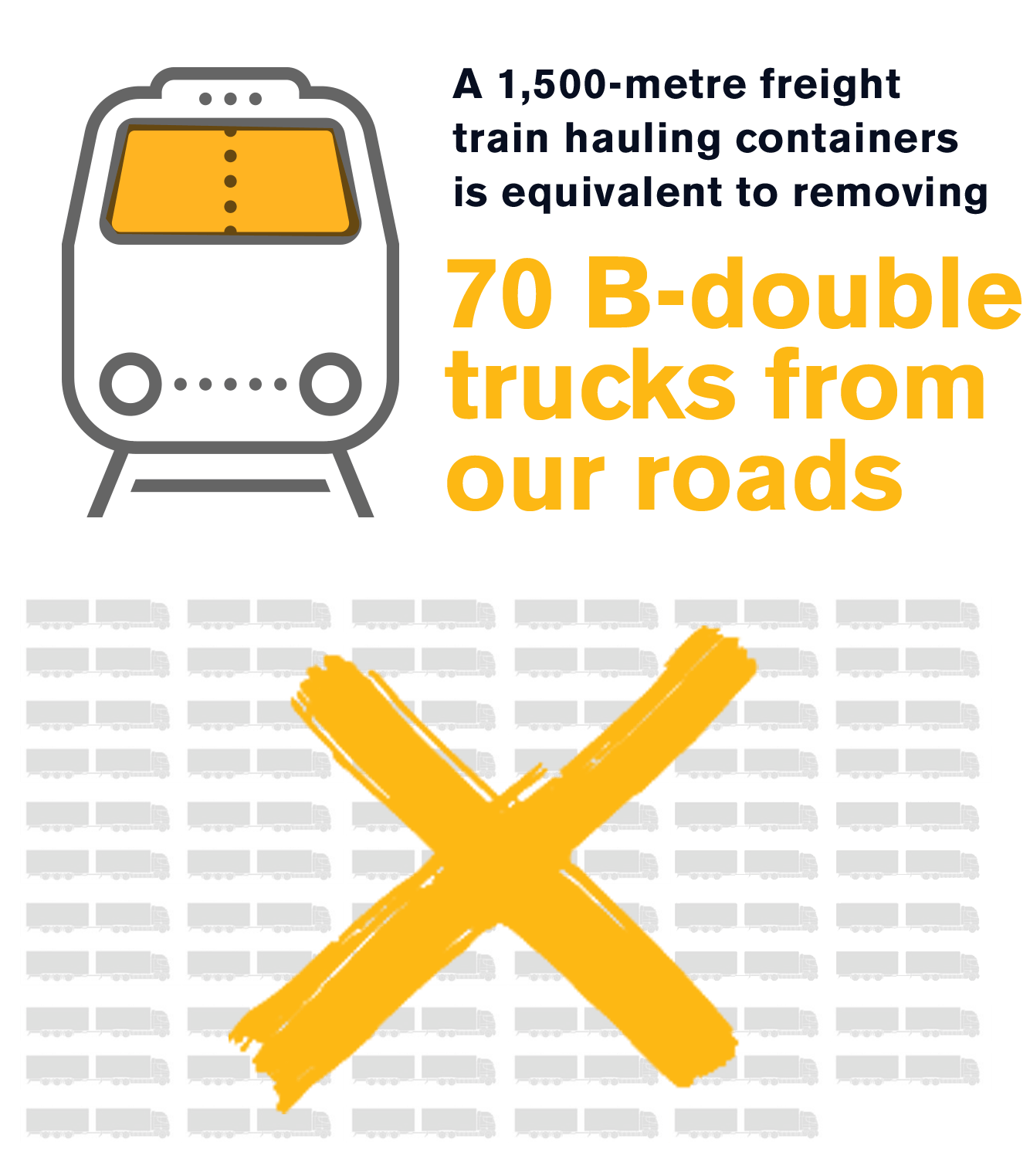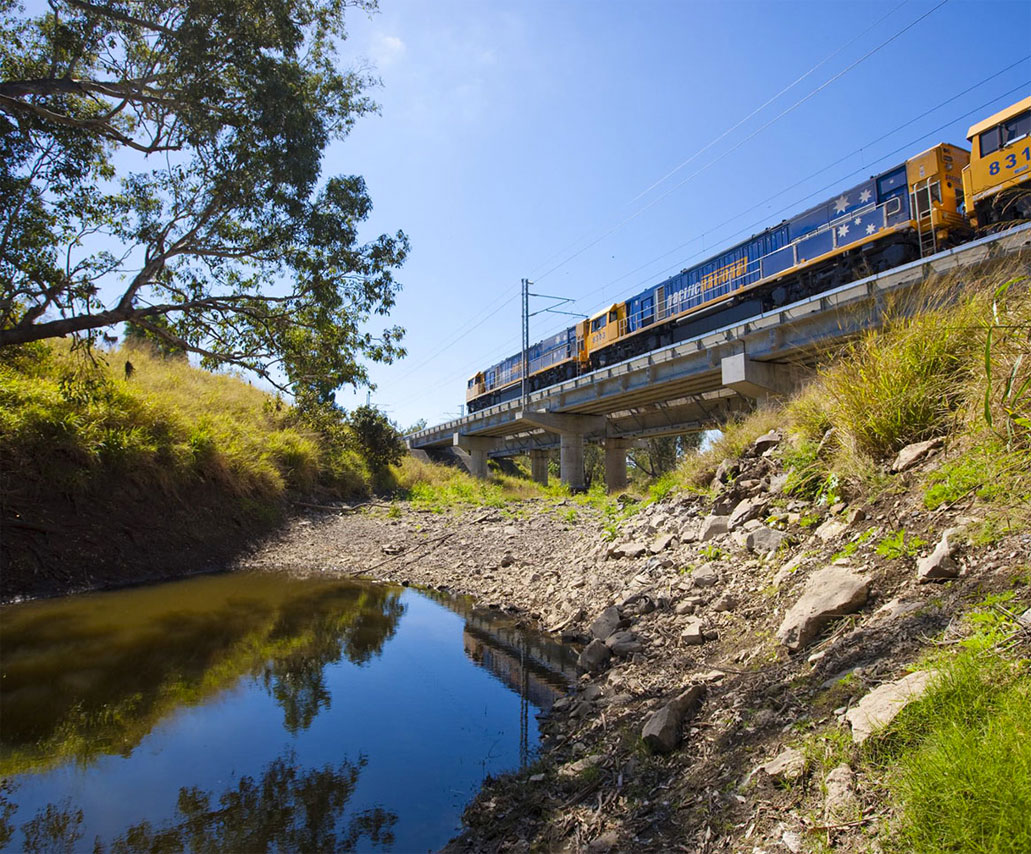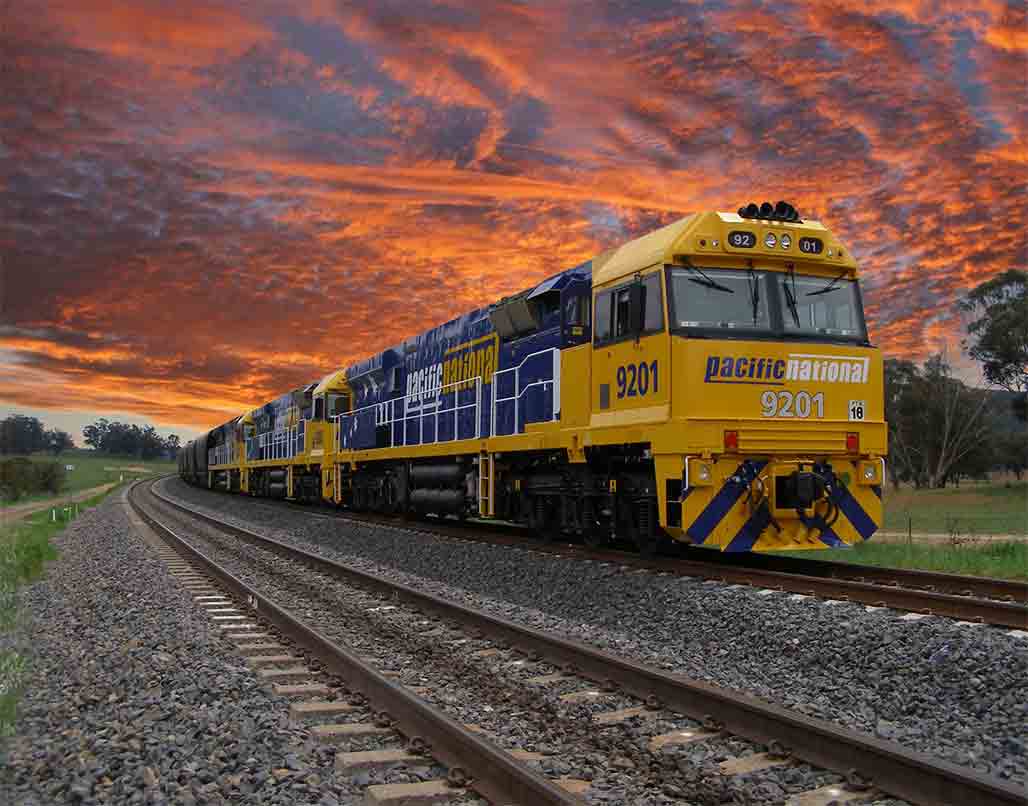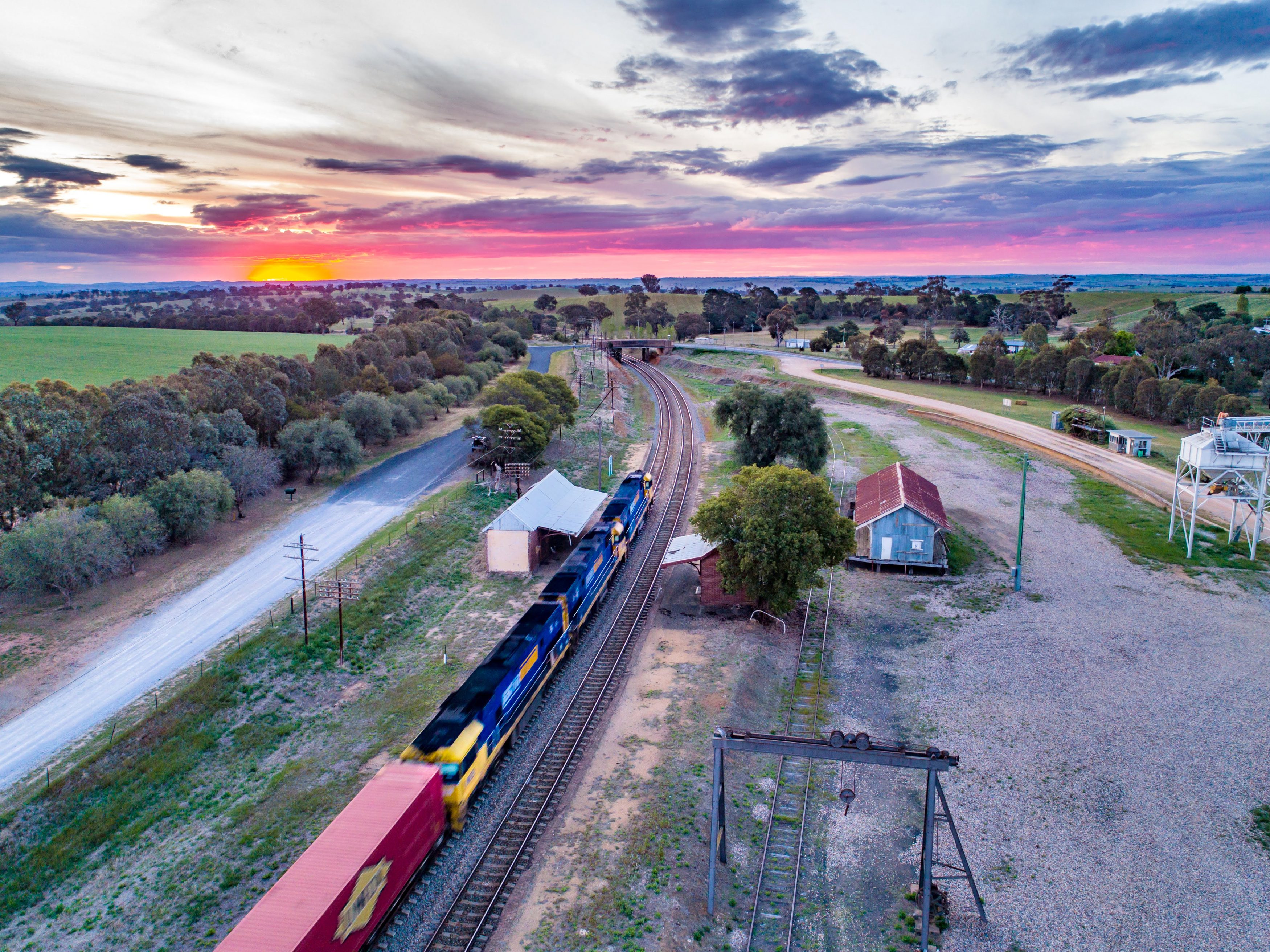

Our fleet strategy is an enterprise plan that will renew aging fleets with state-of-the-art locomotives to deliver lower emissions and operating costs, improved productivity, reliability and availability.
We are also working on a wide range of transformation projects to deliver operational, commercial and environmental improvement.
Pacific National recognises the requirement to reduce greenhouse gas (GHG) and reducing fuel use and associated emissions is a high priority.


Pacific National are members of FORG of Australia – a rail freight industry advocacy group established in 2015 to engage with government and key stakeholders on major public policy issues.
Additionally, the Rail Industry Safety and Standards Board (RISSB) Code of Practice – Management of Locomotive Exhaust Emissions was published in December 2018, with all rail operators now committed to meeting the Code and reporting against the Code annually.
Pacific National are members of FORG of Australia – a rail freight industry advocacy group established in 2015 to engage with government and key stakeholders on major public policy issues.
Additionally, the Rail Industry Safety and Standards Board (RISSB) Code of Practice – Management of Locomotive Exhaust Emissions was published in December 2018, with all rail operators now committed to meeting the Code and reporting against the Code annually.

